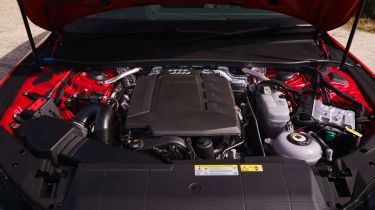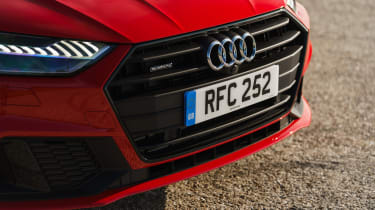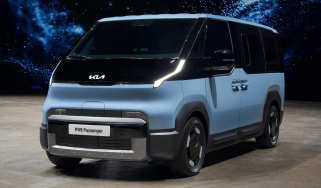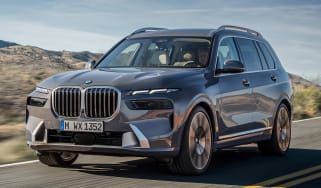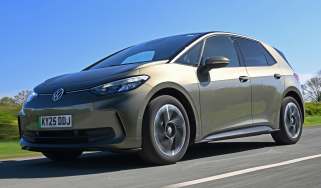Audi A7 Sportback - Engines, performance and drive
The Audi A7 offers a composed and confidence-inspiring drive, but it isn’t particularly exciting

The old Audi A7 Sportback was a comfortable and capable cruiser, but didn’t feel particularly sporting or agile. Audi has tried to address that with the second-generation car, introducing weight-saving measures and driving aids, such as four-wheel steering. The latter can turn the rear wheels up to five degrees in the opposite direction at low speeds to make the car easier to manoeuvre, and two degrees in the same direction at higher speeds to make it feel more stable.
The A7 certainly feels sharper than an A8 from the off, with less body movement and more direct steering providing greater agility. The ride isn’t perfect, especially at low speeds. If you value comfort, stick with the entry-level Sport because that has a softer suspension set-up than S line models that get firmer sports suspension as standard. The quattro all-wheel drive system is standard across the range, and provides all the traction you’ll need, whatever the weather. The A7 is confidence-inspiring and easy to place on the road, but it never feels like a car you’d drive purely for the enjoyment of doing so.
It’s not exactly an all-out thrill machine, but the A7 impresses greatly as a motorway cruiser. The engines are hushed, while wind and road noise are well isolated. It’s a great car to dispatch miles in at speed.
Used - available now
The S7 sharpens things up over the standard A7, helping to make it more enjoyable to drive. Adaptive suspension is standard so that you can tailor the ride depending upon the road conditions, although it can be jiggly at low speeds. The handling is impressive, though. Thanks to the inclusion of four-wheel steering on Vorsprung trim, the S7 feels agile and well-balanced. The steering is light and offers little feel, though, so ultimately, it’s still not much fun.
Engines
Throughout its lifetime, the A7’s core engine range has varied in size, but today, it includes a single petrol and diesel, along with a plug-in hybrid. The 2.0-litre 40 TDI diesel produces 202bhp and 400Nm of torque and is mated to a seven-speed S Tronic automatic gearbox. The 45 TFSI petrol is also a turbocharged 2.0-litre unit, which pumps out 262bhp and 370Nm of torque.
Both of these engines also use Audi’s 48v mild-hybrid system, which uses a belt-driven alternator starter that recuperates energy under braking or when coasting and stores it in a lithium ion battery pack under the boot floor.
The system allows the engine to be shut down when coasting at speeds between 34mph and 99mph, and also means the stop/start system can activate while the car is still rolling to a stop. It has little impact on the overall driving experience, however.
These 2.0-litre engines offer improved running costs at the expense of performance, but they're by no means slow. The 262bhp 45 TFSI manages 0-62mph in 6.2 seconds, while the 202bhp 40 TDI diesel has a time of seven seconds.
If you’re considering the Audi A7 Sportback as a company car, or just want to cut your emissions, the plug-in hybrid A7 TFSI e will be the option for you. This model comprises a 2.0-litre petrol engine working in tandem with an electric motor to return 295bhp and 450Nm of torque. This model takes 6.3 seconds to reach 62mph from a standstill and will go on to reach 155mph.
Above these models sits the sporty S7, which is powered by a twin-turbocharged 3.0-litre V6 diesel. A diesel might be an unusual choice for a performance car these days, but a whopping 700Nm of torque — as well as 339bhp — means this executive coupe will sprint from 0-62mph in 5.1 seconds.
The range is topped out by the hot RS 7. Unlike the S7, this all-out performance model relies on petrol power. Its 4.0-litre twin-turbo V8 makes 621bhp, 850Nm of torque and will accelerate from 0-62mph in 3.4 seconds. Top speed is 174mph.

